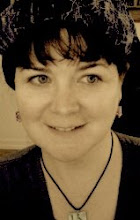A student named Helen Barclift attended the Mordecai school for two terms in 1814. No hometown, no adult name attached to the account. Slim details to go on.
BUT, checking for the name anyway, for any plausible Helen Barclift, I find one! In his 1807 will, Ur Barclift of Edenton NC (somehow part of an extended family of Barclifts in that part of the state) names his friend "Henry A. Donaldson of Edenton" as executor and as guardian of her daughter, Helen Barclift. There were three girls named Donaldson who attended the Mordecai school, all of them from Fayetteville; not a very uncommon name, but that gives some reason to think this might be the girl. So, let's look at her further. Or rather, at her guardian:
Henry A. Donaldson (1782-1870s) was a merchant based in Edenton. In 1807, he was newly married to Elizabeth McDonald. After that date, he turned to the textiles industry, building a mill in Edgecombe County that began operating in 1820. He designed and sold another cotton mill for Fayetteville, and soon became "chief promoter" of the Fayetteville Manufacturing Company. He moved to Wake County in 1830, then to Mobile AL around 1835. He became a banker there, and eventually moved to Texas, where he died after the Civil War.
Or maybe two different Henry A. Donaldsons are being conflated at that biography? Because the textile mill Donaldson was apparently from Rhode Island, and moved to NC in 1817. But there's definitely an Edenton marriage record for a Henry A. Donaldson in 1807. So... possibly not the same guy? Hmmm... and anyway, what ever happened to Helen Barclift, whichever Donaldson was her guardian?
There was a Helen Donaldson who married Edward G. Benners in Mobile AL in 1845. Seems a bit late for her to be marrying for the first time, given the general trend of the Mordecai cohort, but not impossible; and the location matches the biography above. The name would suggest she had taken her guardian's name sometime after 1814? This is getting pretty far beyond what we really know; it's only a possible lead. (Edward G. Benners was brother of Augustus Benners, whose plantation journal beginning in the 1850s and carrying through Reconstruction was published last year.)
Monday, May 3, 2010
Subscribe to:
Post Comments (Atom)

No comments:
Post a Comment